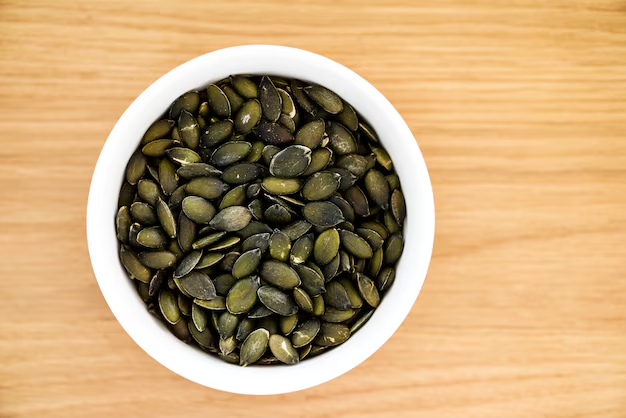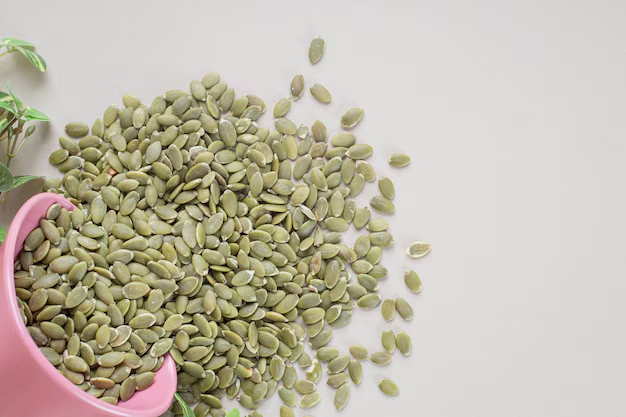Turkey bacon has become a popular choice for those looking for a healthier alternative to traditional pork bacon. But is it really a better option? This article explores the nutritional value, ingredients, and potential health benefits of turkey bacon, helping you decide if turkey bacon is healthy for your diet.
Overview of Turkey Bacon: A Popular Alternative
Turkey bacon is often marketed as a healthier substitute for regular bacon. Made from turkey meat, it mimics the flavor and texture of pork bacon while boasting fewer calories and less fat. But does it deliver the same nutritional benefits?
Why People Consider Turkey Bacon a Healthier Option
Many choose turkey bacon because it’s lower in fat, especially saturated fat. It also appeals to those avoiding pork for dietary or religious reasons. However, it’s essential to understand its nutritional profile before assuming it’s a healthier choice.
What is Turkey Bacon?
Turkey bacon is a processed meat product made from turkey. Unlike pork bacon, which comes from pork belly, turkey bacon is made by combining finely ground turkey meat with seasonings, preservatives, and flavorings to resemble traditional bacon.
How is Turkey Bacon Made?
Turkey bacon undergoes a process that includes:
- Grinding: Turkey meat, sometimes including skin, is ground into a fine mixture.
- Flavoring: Seasonings like salt, sugar, and smoke flavor are added.
- Forming: The mixture is shaped into strips to mimic the appearance of bacon.
- Cooking: It is pre-cooked or smoked, ready for reheating at home.
Ingredients in Turkey Bacon: Natural vs. Processed
The ingredients in turkey bacon vary by brand. Some brands prioritize natural, simple ingredients, while others use additives. Common ingredients include:
- Turkey meat: The primary ingredient.
- Salt and sugar: For flavor and preservation.
- Preservatives: Such as sodium nitrate to extend shelf life.
- Smoke flavoring: To mimic the taste of traditional bacon.
Tip: Always check the label for added preservatives or high sodium content if you’re looking for a healthier option.
Related to Read: Is Turkey Sausage Healthy? Find Out the Health Benefits and Drawbacks!
Nutritional Breakdown of Turkey Bacon
Understanding the nutrition of turkey bacon is crucial for determining its health value. Here’s a comparison of the typical nutritional content in one slice of turkey bacon versus pork bacon:
| Nutrient | Turkey Bacon (per slice) | Pork Bacon (per slice) |
| Calories | 30 | 43 |
| Total Fat | 2g | 3.5g |
| Saturated Fat | 0.7g | 1.1g |
| Protein | 2g | 3g |
| Sodium | 190mg | 200mg |
Calories and Fat Content in Turkey Bacon
Turkey bacon has fewer calories and less fat than pork bacon. However, it’s still a processed food and should be consumed in moderation.
Turkey Bacon Protein Content: Is it a Good Source of Protein?
While turkey bacon provides some protein, it is not a significant source. One slice typically contains about 2 grams of protein, compared to 3 grams in pork bacon. For high-protein diets, turkey bacon may not be the best option.
Does Turkey Bacon Have Nitrates or Preservatives?
Most turkey bacon contains nitrates or nitrites, which are preservatives used to maintain color and flavor. Excessive consumption of nitrates has been linked to health risks, including cancer. Opt for brands labeled “nitrate-free” for a safer choice.
Related to Read: Is Bacon Healthy? Find Out the Health Benefits and Drawbacks!
Is Turkey Bacon Healthy?
Turkey bacon has both benefits and drawbacks. Let’s explore further.

Comparing Turkey Bacon vs. Regular Bacon: Health Benefits and Risks
Turkey bacon has less fat and fewer calories, making it suitable for those watching their weight or cholesterol levels. However, it is high in sodium and lacks the same protein content as regular bacon.
Is Turkey Bacon Heart-Healthy?
Turkey bacon’s lower saturated fat content may make it a better choice for heart health compared to pork bacon. However, the high sodium levels can increase blood pressure, so it should be eaten sparingly.
Is Turkey Bacon Good for Weight Loss?
Turkey bacon is lower in calories, which can benefit weight loss. For example, replacing two slices of pork bacon with turkey bacon saves about 26 calories and 3 grams of fat. However, portion control remains critical.
Does Turkey Bacon Fit Into Keto and Low-Carb Diets?
Turkey bacon is compatible with keto and low-carb diets because it’s low in carbohydrates. However, those on these diets should watch for added sugars in certain brands. Opt for unsweetened varieties to keep your carb intake minimal.
Potential Health Concerns with Turkey Bacon
While turkey bacon is lower in fat than pork bacon, it is not free from health concerns. Understanding these can help you make informed dietary choices.
Is Turkey Bacon Processed? What You Need to Know
Yes, turkey bacon is a processed meat product. It contains additives, flavorings, and preservatives to enhance taste and shelf life. Regular consumption of processed meats has been linked to certain health risks, including heart disease and cancer.
Sodium Content in Turkey Bacon: Should You Be Concerned?
Turkey bacon is high in sodium, with some brands containing over 200 milligrams per slice. Excess sodium can lead to hypertension, increasing the risk of heart disease and stroke. If you’re monitoring sodium intake, choose low-sodium options.
The Role of Additives and Nitrates in Turkey Bacon
Many turkey bacon products include nitrates or nitrites as preservatives. These compounds maintain freshness and color but may pose health risks when consumed excessively. Look for “nitrate-free” or “no added nitrates” labels when shopping for turkey bacon.
Turkey Bacon and Special Diets
Turkey bacon’s nutritional composition makes it suitable for some diets but not ideal for others.
Is Turkey Bacon Suitable for Diabetic Patients?
Turkey bacon can be consumed by diabetics in moderation. It has a low carbohydrate content, which helps regulate blood sugar levels. However, its high sodium and saturated fat levels could affect heart health, which is a concern for diabetics.
Turkey Bacon for Weight Loss: How to Incorporate It Responsibly
Turkey bacon is lower in calories than pork bacon, making it a better choice for weight loss. However, portion control is critical. Pair it with nutrient-rich foods like vegetables or whole grains to create a balanced meal.
Is Turkey Bacon Keto-Friendly?
Yes, turkey bacon is keto-friendly due to its low carbohydrate content. It can be a protein-rich snack or meal addition for those on a keto or low-carb diet. Be cautious of added sugars in flavored varieties, which can increase the carb count.
Alternatives to Turkey Bacon
If turkey bacon doesn’t meet your health needs, several alternatives are available.
Comparing Turkey Bacon with Plant-Based Bacon
Plant-based bacon is made from ingredients like soy, peas, or coconut. It is often lower in fat and sodium than turkey bacon, making it a suitable option for vegetarians or those avoiding animal products.
Other Healthier Bacon Options
- Uncured Pork Bacon: Contains no added nitrates.
- Canadian Bacon: Lower in fat and calories than traditional bacon.
- Beef Bacon: A leaner alternative to pork bacon.
How to Choose the Healthiest Turkey Bacon
Selecting the right turkey bacon can minimize its health risks while maximizing its benefits.

Tips for Selecting Low-Sodium or Nitrate-Free Turkey Bacon
- Read Labels: Look for brands labeled “low sodium” or “nitrate-free.”
- Check Ingredients: Choose options with fewer additives and preservatives.
- Compare Nutritional Values: Opt for brands with lower sodium and higher protein content.
Cooking Methods to Make Turkey Bacon Healthier
- Bake or Air Fry: Reduce added fats by avoiding frying in oil.
- Blot Excess Fat: Use a paper towel to absorb extra grease after cooking.
- Pair with Healthy Foods: Serve with vegetables or whole-grain bread to balance the meal.
Related to Read: Leftover Beef Tenderloin Recipes
FAQs About Turkey Bacon
1. Is turkey bacon good for you on a daily basis?
No, due to its high sodium and processed nature, it’s best consumed in moderation.
2. Does turkey bacon have less cholesterol than regular bacon?
Yes, turkey bacon typically contains less cholesterol than pork bacon, making it a better option for heart health.
3. Can turkey bacon be eaten on a keto diet?
Yes, turkey bacon is low in carbs and fits well into a keto diet.
4. Is turkey bacon high in sodium?
Yes, most turkey bacon products are high in sodium, which can be a concern for people with hypertension or other health issues.
5. Is turkey bacon good for your heart?
Turkey bacon has less saturated fat than pork bacon, but its high sodium content can still pose risks to heart health.
Conclusion
Is Turkey Bacon a Healthy Choice for You?
Turkey bacon offers a lower-calorie, lower-fat alternative to pork bacon. However, it’s still processed and high in sodium, which means it should be enjoyed occasionally rather than daily.
Final Thoughts on Turkey Bacon’s Role in a Balanced Diet
Turkey bacon can fit into a healthy diet when consumed in moderation and paired with nutrient-rich foods. Choose low-sodium, nitrate-free options and prepare it using healthier cooking methods for the best results.






















